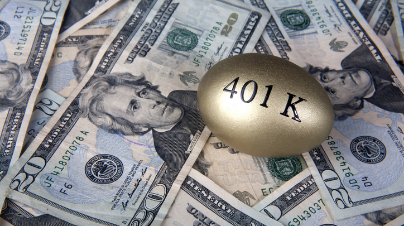Planning for retirement is a critical aspect of financial health, and a 401(k) plan is one of the most common tools Americans use to save for their golden years. However, life can throw unexpected curveballs that might make you consider accessing your 401(k) funds early. But how much of your 401(k) will you actually get if you withdraw early? Let’s delve into this topic and understand how to access 401(k) funds early.
Understanding Early Withdrawal from Your 401(k)
Before we discuss the specifics, it’s essential to understand what constitutes an early withdrawal. In general, if you withdraw money from your 401(k) before reaching the age of 59½, it’s considered an early withdrawal. This rule applies unless certain exceptions are met, like facing severe financial hardship or disability.
The Impact of Penalties and Taxes on Early Withdrawal
When considering how much of your 401(k) you’ll get if you withdraw early, the first thing to consider is penalties and taxes. The IRS imposes a hefty penalty for early withdrawals from a traditional 401(k) plan. This penalty is typically around 10% of the amount withdrawn.
In addition to this penalty, the amount withdrawn will also be subject to federal income tax (and possibly state income tax depending on where you live). The exact rate will depend on your tax bracket but could be as high as 37%+. So if you’re considering an early withdrawal from your traditional 401(k), remember that between penalties and taxes, a significant chunk could be taken out before it even reaches your pocket.
Exceptions to the Early Withdrawal Penalty
While there are hefty penalties associated with withdrawing from your 401(k) early, there are some exceptions where the IRS waives the additional 10% penalty:
1. Disability: If you become totally and permanently disabled, you can withdraw from your 401(k) without the additional penalty.
2. Medical expenses: If you have unreimbursed medical expenses that exceed a percentage of your adjusted gross income, the penalty is waived.
3. Separation from service: If you leave your job (for any reason) in or after the year you turn 55, the early withdrawal penalty does not apply. Understand the rules and limitations.
4. Substantially Equal Periodic Payments (Rule 72)t)): This is a complex rule that allows for penalty-free withdrawals if they are part of a Series of Substantially Equal Periodic Payments over your life expectancy. There are specific rules and limitations that must be understood.
Remember, even if one of these exceptions applies and you avoid the 10% penalty, you’ll still owe income tax on the withdrawal.
How to Access 401(k) Funds Early Without Penalty
If none of the above exceptions apply to your situation but you still need to access your funds early, there are a couple of strategies to consider:
1. Loan from Your 401(k): Many plans allow participants to borrow up to 50% of their vested account balance or $50,000, whichever is less. The loan must be repaid within five years with interest but it’s paid back into your account.
2. Roth IRA Conversion: This strategy involves rolling over funds from a traditional 401(k) into a Roth IRA. You’ll pay income tax on the amount converted but then can withdraw contributions (not earnings) from the Roth IRA without penalty or further taxes. Check the rules and limitations to ensure.
Conclusion
While accessing your 401(k) funds early might seem like an attractive option in times of financial strain, it’s important to understand how much it could end up costing you in penalties and taxes. Before making any decisions, consider all available options and consult with a knowlegeable and experienced financial advisor, if possible. Remember that while immediate needs are important, so too is ensuring a comfortable retirement down the line.



